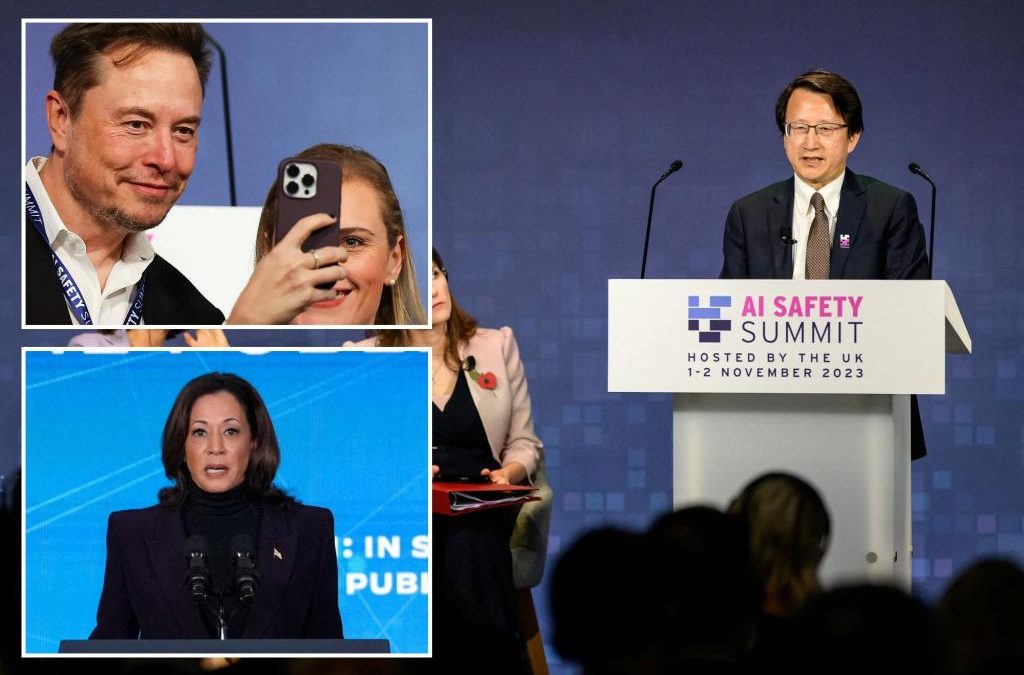China said Wednesday it wanted to work with international partners to manage the oversight of artificial intelligence as political leaders and technology executives gathered at an inaugural AI Safety Summit in Britain to plot the way forward.
Some tech bosses and political leaders have warned the rapid development of AI poses an existential threat to the world, sparking a race by governments and international institutions to design safeguards and regulation for the future.
In a first for Western efforts to manage the safe development of AI, a Chinese vice minister joined leaders from the United States and the European Union, alongside tech bosses such as Elon Musk and ChatGPT’s Sam Altman.
“China is willing to enhance our dialog and communication in AI safety with all sides, contributing to an international mechanism with global participation in governance framework that needs wide consensus,” Wu Zhaohui said at the start of the summit, according to an official translation of his remarks.
“Countries regardless of their size and scale have equal rights to develop and use AI,” he added.
Musk, who has warned about the risks of AI, said the summit wanted to establish a “third-party referee” for companies developing the technology, so it could sound the alarm when risks develop, and so instill confidence in the public.
The meeting — held at Bletchley Park, home of Britain’s World War Two code-breakers — is the brainchild of Prime Minister Rishi Sunak. He wants to carve out a role for Britain as an intermediary between the economic blocs of the United States, China and the EU.
The summit is focused on highly capable general-purpose models called “frontier AI”
Participating governments produced a “Bletchley Declaration”, with 28 countries and the EU agreeing the need for transparency and accountability from actors in frontier AI technology, including how they will measure, monitor and mitigate potentially harmful capabilities.
A collective plan
British digital minister Michelle Donelan said it was an achievement just to get so many key players in one room.
“For the first time, we now have countries agreeing that we need to look not just independently but collectively at the risk around frontier AI,” she told reporters.
China is a key participant, given the country’s role in developing AI technology.
However, some British lawmakers have questioned whether it should be there given the low level of trust between Beijing, Washington and many European capitals when it comes to Chinese involvement in technology.
The United States made clear on the eve of the summit that the call to Beijing had very much come from Britain, with its Ambassador to London, Jane Hartley, telling Reuters: “This is the UK invitation, this is not the US.”
US Vice President Kamala Harris also spoke in London on Wednesday, away from the summit, setting out her government’s response to AI, after President Biden signed an executive order on Monday.
The timing and location of her speech has raised eyebrows among some in the UK’s governing Conservative Party who suggest Washington is trying to overshadow Sunak’s summit — a charge denied by British officials who say they want as many voices as possible.
Harris will meet Sunak later on Wednesday and attend the summit’s second day on Thursday.
US Secretary of Commerce Gina Raimondo used the summit to announce the launch of a US AI Safety Institute, and said it would cooperate with Britain’s recently announced institute.
Canada’s minister of innovation, science and industry Francois-Philippe Champagne said AI would not be constrained by national borders, and therefore interoperability between different regulations being put in place was important.
“The risk is that we do too little, rather than too much, given the evolution and speed with which things are going,” he told Reuters.
On the agenda are topics like how AI systems might be used by terrorists to build bioweapons and the technology’s potential to outsmart humans and wreak havoc on the world.
Source




